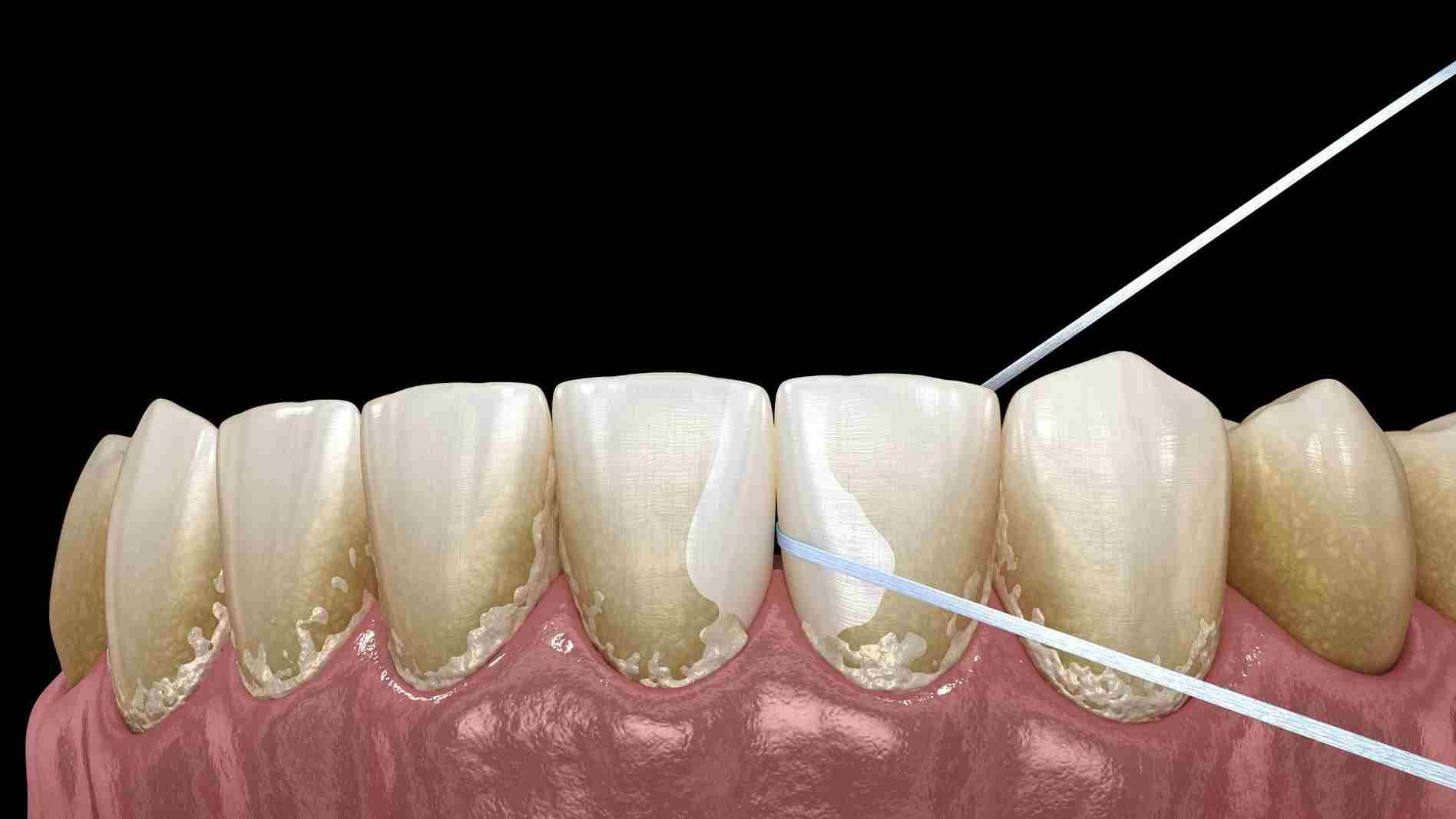Can Teeth Remineralize?
Yes, teeth can remineralize with the help of certain remineralizing agents.
Enamel remineralization is a natural process where minerals such as calcium and phosphate are redeposited into the tooth enamel after being removed by acids from bacteria and food.
This process can help repair early stages of tooth decay and help strengthen your enamel.
To support remineralization, it is important to maintain good oral hygiene, use nano hydroxyapatite toothpaste, consume a diet rich in minerals, and avoid sugary and acidic foods and drinks.
Keep reading to learn everything you need to know about tooth remineralization and how it can effectively works.
What is tooth enamel remineralization?

Remineralization is our body’s natural repair mechanism for healing tooth enamel after it has undergone the demineralization process. The integrity of tooth structure plays a crucial role in the remineralization process, as it determines how effectively minerals can be redeposited into the enamel.
You see, demineralization occurs when the bad bacteria living in our mouths feast on the sugars stuck to our teeth (think plaque!) and produce acids as byproducts. These byproducts erode away at the mineral content of our teeth, causing tooth decay and, if left untreated, dental caries.
Thankfully, the remineralization process counters demineralization by depositing essential minerals, namely calcium phosphate, back into the enamel. These minerals are largely supplied by our saliva, but they can also be depositing through the right remineralizing toothpaste, such as fluoride toothpaste or nano hydroxyapatite toothpaste.
Both nano hydroxyapatite and fluoride are effective at strengthening tooth enamel and reversing tooth decay before it progresses to enamel caries, though many people view fluoride as an ingredient to avoid in toothpaste.
How Remineralizing Toothpaste Works
Remineralizing toothpaste works by providing essential minerals directly to the tooth enamel, facilitating the natural process of remineralization when you brush your teeth. This process is crucial for repairing the microscopic damage caused by demineralization, which occurs when acids produced by bacteria in the mouth dissolve the minerals in the tooth enamel.
The key to the effectiveness of remineralizing toothpaste lies in its active ingredients, which typically include calcium, phosphate, and fluoride or safer alternatives like nano hydroxyapatite.
When you brush your teeth with remineralizing toothpaste, these active ingredients adhere to the tooth surface and interact with saliva. Now, your saliva is naturally supersaturated with calcium and phosphate, which are the primary minerals that our teeth need to repair themselves.

However, the remineralization process can be enhanced with the additional minerals from toothpaste. Fluoride, for example, forms a harder, more acid-resistant mineral called fluorapatite on the tooth surface.
Nano hydroxyapatite, on the other hand, is a biomimetic material that closely mimics the mineral composition of tooth enamel. When used in remineralizing toothpaste, nHA particles can directly fill in and rebuild the enamel's microscopic cracks and voids. This not only helps restore the structural integrity and smoothness of the enamel but also reduces tooth sensitivity by covering exposed dentin tubules.
Overall, the direct application of these minerals to the teeth supports the natural remineralization process, enhancing your defense against tooth decay and enamel erosion.
Can you remineralize a cavity?

While the initial stages of tooth decay (also known as demineralization) can be stopped or reversed through remineralization, true cavities cannot be remineralized and must be treated by a professional.
While some individuals suggest that cavities can be remineralized, the truth is that the "cavities" they are referring to are likely just initial stages of tooth decay and not true cavities that have reached the dentin. Ultimately, the decision to fix a cavity with a filling changes from dentist to dentist.
Thankfully, there are steps you can take at home to remineralize tooth decay and prevent it from forming, including:
-
brushing with nano hydroxyapatite toothpaste
-
maintaining a healthy diet and limiting sugary foods
-
and avoiding dry mouth.
By following this routine, you can effectively support your oral health and potentially prevent the development of cavities.
What causes remineralization?
Remineralization is caused by your saliva or toothpaste depositing essential minerals like calcium and phosphate back into the tooth enamel. This process strengthens our teeth and protects against decay.
In this section, we'll walk through some of the main drivers of how you can remineralize teeth regularly.
Your Saliva Production
Saliva plays a vital role in remineralization by:
-
maintaining a balanced pH in your mouth
-
neutralizing acidic conditions that promote demineralization
-
and providing essential minerals like calcium and phosphate
It also contains antimicrobial properties that control harmful bacteria, reducing acid production and contributing to a healthier oral environment.
Essentially, saliva forms a protective coating over your teeth, acting as a barrier against external factors and providing lubrication to help maintain enamel integrity.
Additionally, increased salivary flow during activities like chewing stimulates remineralization by delivering minerals to tooth surfaces and rinsing away acids and debris.
Nano Hydroxyapatite Toothpaste

A synthetic form of a mineral naturally found in teeth and bones, nano hydroxyapatite supports healthy teeth by promoting remineralization. When used in toothpaste, studies show nHA particles can bond with tooth enamel, effectively filling in micro-sized surface defects and strengthening the enamel structure.
This helps repair early enamel lesions and minor surface imperfections, making our enamel more resilient to acid attacks and reducing the risk of tooth decay.
By brushing with nano hydroxyapatite toothpaste daily, you can remineralize your teeth and prevent damage.
Xylitol
Research suggests xylitol supports healthy teeth by reducing the growth of harmful oral bacteria. Xylitol disrupts the bacteria's ability to metabolize sugars, leading to a decrease in acid production.
This reduction in acidic conditions helps create a healthier oral environment, supporting remineralization and reducing the risk of tooth decay.
Xylitol-containing products, such as gum and toothpaste, can help remineralize your teeth, which can be especially beneficial for individuals prone to cavities.Limiting Acidic Foods in Your Diet
Acidic foods and beverages, such as citrus fruits, carbonated sodas, and certain sauces, can weaken tooth enamel and contribute to enamel erosion over time.
Limiting your consumption of acidic foods helps reduce the risk of acid-related enamel damage.
If you do consume acidic items, consider rinsing your mouth with water afterward or using an alkaline mouthwash to help neutralize acids and minimize their effects on your teeth.
Causes of Tooth Demineralization
Tooth demineralization is primarily caused by the interaction of acids with tooth enamel. These can be dietary acids or simply acids produced by the bad bacteria in our mouth. Let's walk through some of the main causes of demineralization:
Bad Bacteria & Plaque
Dental plaque is a thin, sticky film that naturally forms on our teeth. It consists of bacteria colonies that feed on sugars and carbohydrates from the foods we consume.
As they metabolize these sugars, they produce acids as byproducts. These acids can gradually erode the minerals, primarily calcium and phosphate, from our teeth which leads to demineralization.
Regular brushing and flossing help remove dental plaque, reducing the presence of acid-producing bacteria and their harmful effects on enamel.
Dietary Acids
Consuming acidic foods and beverages can directly introduce acids into our mouths, disrupting our oral pH.
For example, citrus fruits, carbonated sodas, and fruit juices are naturally acidic. When these acidic substances come into contact with tooth enamel, they can weaken the enamel's mineral structure, making it more susceptible to demineralization.
Limiting the intake of acidic foods and practicing good oral hygiene can help mitigate the impact of these dietary acids on teeth.
Poor Oral Hygiene

Inadequate oral hygiene practices, such as infrequent or insufficient brushing and flossing, can lead to dental plaque accumulating on tooth surfaces.
When plaque is not regularly removed, it provides a breeding ground for acid-producing bacteria. These bacteria thrive in the plaque and continuously generate acids as they metabolize sugars.
The prolonged exposure of teeth to these acids can result in demineralization, making regular and thorough oral care essential for preventing enamel damage.
Dry Mouth
Saliva is known for its ability to neutralize acids and support the remineralization of enamel. It's an essential component of your oral microbiome.
However, conditions that reduce salivary flow, such as certain medications, medical conditions, or dehydration, can leave the mouth dry. In a dry mouth environment, acids are not effectively neutralized, and the protective effects of saliva are compromised.
This can lead to an increased risk of enamel demineralization and tooth decay, making it essential for individuals with dry mouth to manage this condition effectively.
To combat dry mouth, certain toothpastes and chewing gums contain xylitol, a compound that has been proven to promote saliva production and normalize oral pH.
Acid Reflux
Conditions like acid reflux (gastroesophageal reflux disease or GERD) or frequent vomiting expose teeth to stomach acids, which are highly acidic and corrosive.
When these strong acids come into contact with tooth enamel, they can rapidly erode the minerals from the enamel surface, leading to demineralization.
Individuals with these conditions are at an elevated risk of enamel damage, and managing acid reflux or vomiting episodes is crucial to protect dental health.
How long does remineralization take?
Studies show that remineralizing toothpaste with nano hydroxyapatite can promote remineralization in as little as 8 weeks.
That said, remineralization is a gradual process that can vary in duration depending on several factors. For example, the extent of enamel damage is a rate limiting factor as minor surface defects or early enamel lesions remineralizing more quickly than deeper or more extensive damage.
For minor enamel erosion or early stages of tooth decay (also known as white spot lesions), remineralization can often start to reverse the damage within a few weeks of consistent exposure to nano hydroxyapatite toothpaste.
However, for the remineralization process to effectively repair enamel and significantly reduce your risk of cavities, it needs to be an ongoing effort that includes maintaining a diet low in acidic and sugary foods, practicing good oral hygiene, and ensuring regular intake of remineralizing agents.
It's important to note that while remineralization can repair early enamel erosion and small lesions, you cannot remineralize cavities that have progressed to form holes or structural damage in the teeth.
Benefits of Using Remineralizing Toothpaste

Remineralizing toothpaste offers numerous benefits for dental health, making it a valuable addition to any oral care routine.
One of the primary advantages is its ability to strengthen tooth enamel, which can weaken over time due to acidic foods and drinks.
By providing essential minerals like calcium, phosphate, and magnesium, remineralizing toothpaste helps to fortify tooth enamel, preventing damage and decay.
Additionally, it promotes gum health, whitens teeth, and freshens breath.
Furthermore, there are studies found that toothpaste containing nano-hydroxyapatite (nHA) was effective in reducing the severity of early carious lesions and reversing the demineralization process.
Another study demonstrated that nHA-containing toothpaste was as effective as fluoride toothpaste in preventing and reversing dental caries.
These findings highlight the importance of remineralizing toothpaste in maintaining healthy teeth and gums, and its potential to reverse early stages of tooth decay.
Comparing Fluoride and Nano Hydroxyapatite for Remineralization
Fluoride and nano hydroxyapatite are two effective ingredients for promoting remineralization and preventing tooth decay. However, in comparison hydroxyapatite vs fluoride, there are some differences in how they work.
How Fluoride Works
Fluoride is a well-established and widely used mineral in dental care known for its effectiveness in promoting remineralization and strengthening tooth enamel.
It works by enhancing the deposition of fluoride ions into enamel, forming a more acid-resistant mineral called fluorapatite. Additionally, fluoride helps inhibit the growth of acid-producing bacteria, reducing the risk of acid attacks on enamel.
How Nano Hydroxyapatite Works

Nano hydroxyapatite (nHA), on the other hand, is a synthetic form of hydroxyapatite, a mineral naturally found in teeth and bones. What sets nHA apart is its significantly smaller particle size, allowing for better penetration into enamel.
Nano hydroxyapatite is safe and effective. This toothpaste works by depositing nano-sized hydroxyapatite particles onto the tooth surface, which can bond with enamel and fill in micro-sized surface defects, thus strengthening the enamel structure.
Research suggests that nHA toothpaste has remineralizing properties and can effectively repair early enamel lesions and minor surface defects. These benefits are maximized at a concentration of 5% nano hydroxyapatite.
Which Is Better?
Many people believe nano hydroxyapatite is better than fluoride in oral care.
While newer, nano hydroxyapatite is shown by research to be equally as effective as fluoride toothpaste at promoting remineralization. In fact, some studies even suggest that it is more effective than fluoride.
Ultimately, the choice of which remineralizing ingredient is up to you. Both nHA and fluoride are effective, but research suggests that excess consumption of fluoride has greater side effects. Conversely, nano hydroxyapatite reportedly has zero adverse effects.
Thus, some people prefer to avoid fluoride and opt for nano hydroxyapatite in toothpaste instead. That said, you can always choose to use fluoride and nano hydroxyapatite together in your routine if you prefer.
What’s the best remineralizing toothpaste?

NOBS Toothpaste Tablets are the best remineralizing toothpaste you can find. Not only do they contain 5% nano hydroxyapatite to support remineralization, but they also contain other great ingredient to support your oral health, including:
-
xylitol to stimulate saliva production and prevent tooth decay
-
zinc citrate to fight bad bacteria and support your oral microbiome
-
and sodium bicarbonate to gently polish your teeth and remove biofilm without causing damage.
As a bonus, they're also a popular eco-friendly toothpaste as they come in a reusable glass jar. In fact, they're zero waste, cruelty-free, and vegan!
Frequently Asked Questions
How long do teeth take to remineralize?
Teeth can start the remineralization process immediately once you begin using a toothpaste containing nano hydroxyapatite. While some effects can be noticed quickly, significant strengthening and repair of enamel typically take a few weeks of consistent use. For optimal results, it's important to maintain regular oral hygiene practices.
Can you remineralize teeth naturally?
Yes, you can help remineralize teeth naturally. Saliva plays a crucial role by providing minerals like calcium and phosphate that help strengthen enamel. Consuming a diet rich in these minerals, staying hydrated, and maintaining good oral hygiene can support natural remineralization. Additionally, using nano hydroxyapatite toothpaste can enhance this process.
Do teeth remineralize themselves?
Yes, teeth can remineralize themselves to some extent. Saliva naturally contains minerals like calcium and phosphate, which help in the remineralization process by restoring lost minerals to the enamel. Additionally, using products containing nano hydroxyapatite can enhance this natural process. However, severe decay requires professional dental intervention.
Can remineralization reverse tooth decay?
Yes, remineralization can reverse the early stages of tooth decay. It involves restoring minerals to the enamel, strengthening it, and stopping the progression of decay. Using products like toothpaste with fluoride or nano hydroxyapatite can aid in this process. However, advanced tooth decay requires professional dental treatment.
Can baking soda get rid of cavities?
No, baking soda cannot get rid of cavities. While it can help remove surface stains and neutralize acids, it doesn't repair tooth decay. For treating early signs of cavities, using a remineralizing toothpaste that contains nano hydroxyapatite can help restore enamel. For advanced cavities, professional dental care is necessary.
How long does it take for teeth to remineralize?
The time it takes for teeth to remineralize can vary depending on the severity of enamel damage and the method used for remineralization. In general, mild cases of enamel demineralization may take a few weeks to show improvement with proper care, such as using remineralizing toothpaste or fluoride treatments. However, more significant damage may take longer or may require professional dental treatments. Studies suggest that consistent use of fluoride or nano-hydroxyapatite toothpaste can support remineralization over time.
How can I speed up my tooth remineralization?
To speed up tooth remineralization, brush with a fluoride toothpaste or fluoride-free toothpaste containing nano-hydroxyapatite to support enamel repair. Avoid acidic foods and drinks that can demineralize your teeth, and ensure you’re consuming calcium-rich foods for strong enamel. Drinking plenty of water throughout the day can also help wash away acids and food particles, promoting healthier teeth.
Can you reverse tooth demineralization?
Yes, tooth demineralization can be reversed, especially in the early stages, through remineralization. Using fluoride toothpaste or fluoride-free toothpaste with nano-hydroxyapatite can help restore minerals to the enamel. Maintaining a healthy diet, avoiding sugary foods, and practicing good oral hygiene also support the remineralization process.
ow do you remineralize your teeth?
You can remineralize your teeth by using toothpaste with ingredients like fluoride or nano hydroxyapatite. These ingredients help restore minerals to the enamel, strengthening it and preventing decay. Additionally, consuming a balanced diet rich in calcium and phosphate can support remineralization.
What is good for remineralizing teeth?
Good options for remineralizing teeth include toothpaste with nano hydroxyapatite, as well as products containing calcium and phosphate. Regular brushing, a proper diet, and limiting sugary foods also contribute to remineralization. Dental treatments like fluoride varnish from a dentist can also help.
What ingredients remineralize teeth?
Nano hydroxyapatite toothpaste remineralizes teeth by using nano-sized hydroxyapatite particles to rebuild and strengthen enamel. These particles bond with the enamel, filling microscopic cracks and preventing further decay. Unlike fluoride, nano hydroxyapatite is non-toxic, biocompatible, and safe for long-term use, making it an effective option for remineralizing teeth.






















